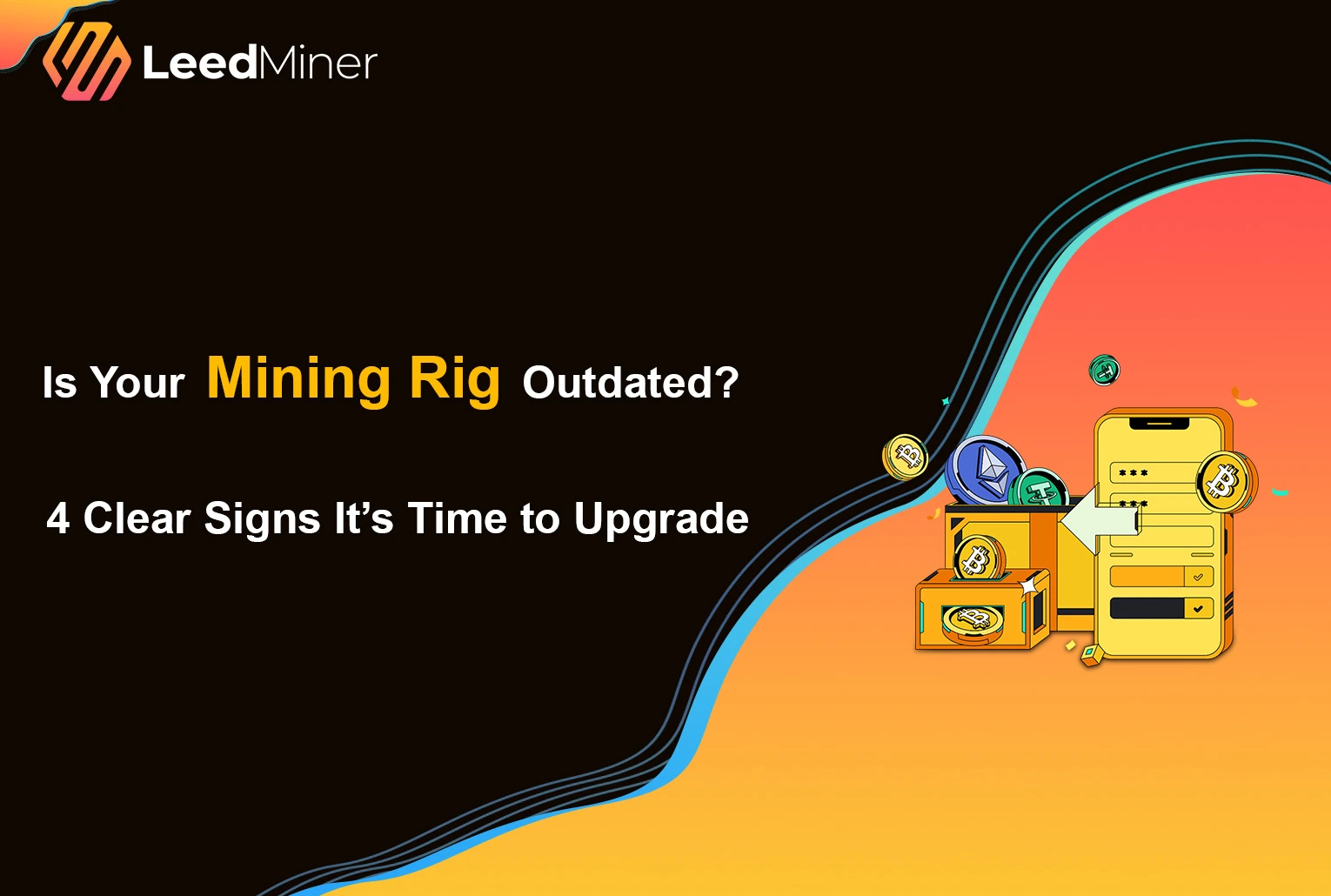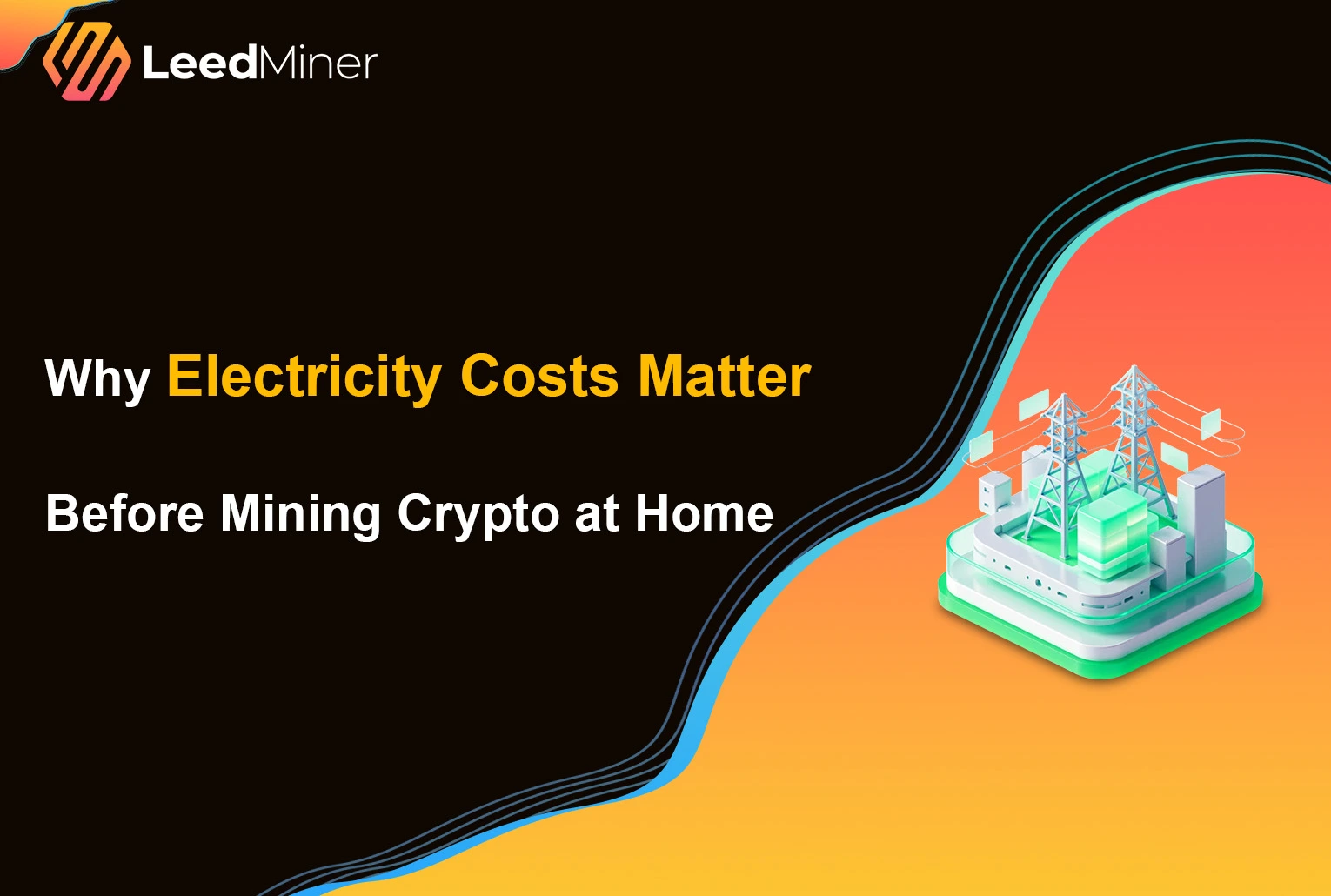SUMMARY
As cryptocurrency mining grows more competitive, holding onto aging hardware can quietly eat into your profits. In 2025, cutting-edge machines offer dramatically improved efficiency—and failing to upgrade could mean falling behind or even operating at a loss. Below are four signs your mining rig is due for an urgent upgrade, backed by real-world examples and model comparisons.
Earnings Lower Than Your Electricity Bill?

If your mining income is consistently less than your power cost (i.e., Profit < Electricity Cost), it's a clear red flag.
When your rig loses money every day for more than a week—even during stable network conditions—it usually means your miner is no longer economically viable. This situation often stems from outdated efficiency, increased network difficulty, or power rate changes.
Tip: Use tools like WhatToMine to check your ROI under your actual electricity rate.
Sudden Hashrate Drop or Power Consumption Spike?

Annual hashrate decline over 15% or a 20%+ increase in power draw indicates chip degradation.
If your rig is producing significantly less hashrate for the same or higher power, or if it’s throttling randomly, these are signs of internal wear—especially in machines over 18 months old. The chips themselves may be degrading beyond repair, leading to irreversible performance loss.
Repairs Cost More Than 30% of Resale Value?

Frequent breakdowns and expensive maintenance are signs of end-of-life.
If a single repair costs more than 30% of the miner’s current resale value—or you’re averaging 3+ failures per month—it’s no longer just a maintenance issue. You’re spending valuable time and money on a rig that’s rapidly losing both productivity and market value.
New Miners Deliver Double the Hashrate on Same Power?

New-generation miners offer 200%+ performance at comparable power draw—making upgrades essential.
Let’s look at real examples from Bitcoin and Scrypt miner lineups.
Bitcoin Air-Cooled Comparison: S21 XP vs S23
| Model | Release Date | Hashrate | Power | Efficiency |
|---|---|---|---|---|
| Bitmain Antminer S21 XP | Oct 2024 | 270Th/s | 3645W | 13.5 J/Th |
| Bitmain Antminer S23 | Jan 2026 | 318Th/s | 3498W | 11 J/Th |
What this means: The S23 delivers ~18% better energy efficiency with more hashrate and less power than its predecessor. This is a direct result of advancements in chip architecture and cooling optimization.
Bitcoin Water-Cooled Leader: S23 Hyd
| Model | Release Date | Hashrate | Power | Efficiency |
|---|---|---|---|---|
| Bitmain Antminer S23 Hyd | Jan 2026 | 580Th/s | 5510W | 9.5 J/Th |
The S23 Hyd breaks the 10 J/Th barrier, setting a new standard for power-to-performance. With over 2x the hashrate of the S21 XP at just ~50% more power, this machine delivers 200%+ net performance per watt—perfect for large farms or energy-sensitive operations.
Bonus: Mining pools are increasingly rejecting rigs with poor performance-to-power ratios. Upgrading helps you avoid disqualification.
Scrypt Miner Showdown: L9 vs ElphaPex DG Series
If you’re mining DOGE, LTC, or other Scrypt coins, the competition is heating up.
| Model | Hashrate | Power | Efficiency | Brand | Notes |
|---|---|---|---|---|---|
| Antminer L9 | 17Gh/s | 3570W | 0.21j/Mh | Bitmain | Industry leader, proven brand |
| ElphaPex DG1+ | 14Gh/s | 3920W | 0.28j/Mh | ElphaPex | Solid alternative |
| ElphaPex DG2+ | 20.5Gh/s | 3900W | 0.19 J/Mh | ElphaPex | Impressive upgrade, strong challenger |
The DG2+ pushes hashrate boundaries while matching the L9’s legendary efficiency. But Bitmain’s reliability, firmware ecosystem, and community trust still keep the L9 a top choice—unless you’re ready to take a calculated risk with newer brands.
Conclusion: Don’t Let Old Hardware Burn Your Profits
Upgrading your mining rig isn’t just a technical choice—it’s a strategic one. New-generation machines offer better ROI, less downtime, and help you stay compliant with pool requirements. Whether you’re mining Bitcoin or altcoins, recognizing the signs of hardware decay early is your best defense against shrinking profits.
Considering an upgrade? Compare models carefully and focus on energy efficiency. If you’re not sure where to start, we’re here to help you choose the best next step for your farm.



